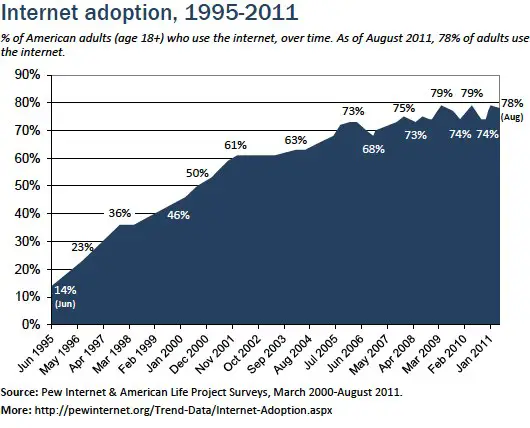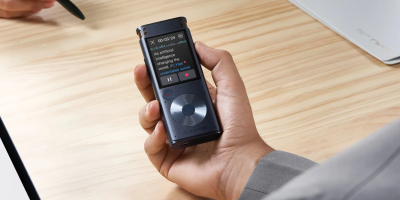
People of my generation had the chance to experience what I like to call the Big Tech Bang. This made-up term refers to the beginning of the communications era. I remember the days when even house phones were a luxury. We used to play games outdoors (not video games), and actually knew every kid in the neighborhood.
Things have changed since then. We no longer need to go to the library, and anyone and anything is reachable with the press of a few buttons. Most of the younger generations can no longer see a world without internet. This is a thought that mostly hits me in situations like one I had last week, when I accepted a Facebook friend request from a 6-year old neighbor.
He just finished learning how to read and write. And he now knows how to use a computer as much as I did when I was about 13. He also uses his parents smartphones seamlessly. But is the whole country (or world) adapting to such a lifestyle?
According to a study held by Pew Internet, 22% of Americans do not have access to the internet. This is a rather surprising statistic. But according to the study, this percentage of the population is mostly made up of Senior Citizens, those that preferred to take the survey in Spanish, adults with less than a high school education and those with incomes lower than $30,000 a year.
This does not mean that the world is not moving forward, though. The study has also found that most people are adopting the new form of communication. Among other statistics, we can see that about 19% of the US population has a tablet, and 87% have a cellphone.
It seems smartphones and tablets are changing the whole story. Internet access is no longer exclusive to computers. And this seems to be breaking through social classes more successfully than Marx ever dreamed of.
The rise of mobile is changing the story. Groups that have traditionally been on the other side of the digital divide in basic internet access are using wireless connections to go online. Among smartphone owners, young adults, minorities, those with no college experience, and those with lower household income levels are more likely than other groups to say that their phone is their main source of internet access.
Even beyond smartphones, both African Americans and English-speaking Latinos are as likely as whites to own any sort of mobile phone, and are more likely to use their phones for a wider range of activities.
Those that do not have access to the internet mostly choose to live that way, nowadays. Such citizens are claiming that the internet is not relevant to their needs. But 1 in 5 of them also state that they never learned enough about technology to use the internet. This is quite interesting, as simple life tasks are starting to require the use of an internet-connected device.
As the new generations start taking over the world, these statistics will probably change. The internet is starting to become more necessary, and kids are growing up with these gadgets. That 22% will probably be close to zero once we become Senior Citizens. What an interesting age that will be.
For more details, go ahead and check out the full study by hitting the source link. And tell us, do you know anyone that has no access to the internet? If so, what is the reason?
[Source: Pew Via: Electronista]












Awesome! Don’t screw it up SOPA/PIPA!
If Obama wins in November, they’ll pass it next year.
/ACTA!
Half of your article have nothing to do with android
No one forced you to read it/them
You’re right, and I don’t!
Yeah, Android blogs are serious business, huh?
I think you take the internet way too seriously. Just perusing through a few your comments reveal your inherent anger issues.
so why are you commenting?
To voice my opinion, problem?
well generally comments are comments on the article. which requires that you read the article.
Even less give a shit about your comment.
Brings to mind my 2 year old daughter knowing which apps in the drawer are for her. She can navigate Netflix and YouTube seamlessly and find her favorite shows and videos. Some say this is wrong but i figure the more she knows inn technology the better. She now “owns”my acer tablet.
I doubt you are that old there Edgar, my parents were born in 1934 and even then home phones were commonplace. TV, however was in it’s infancy, as were computers, it wouldn’t be until the late 40s and 50’s that TV and Computers would start to come into their own.
What they need to do is get something like the Rural Electric Administration (it’s still around, but merged with another department in the 1990s) that FDR did, we went from only a small percentage of farms having electricity at the beginning of World War II to 95% having it by the early 50’s, that’s an AMAZING feat, especially considering how big this country is. We can do a lot, IF we put our mind, and money to it.